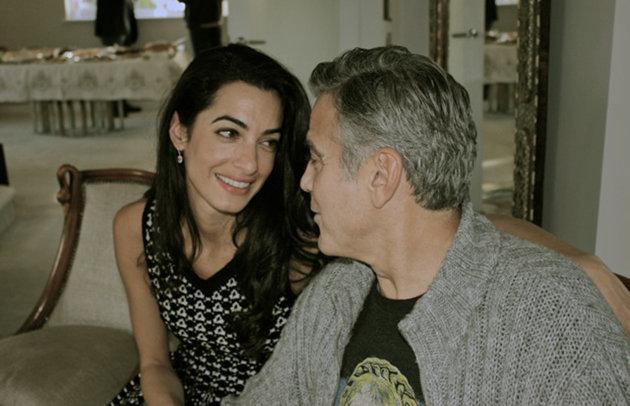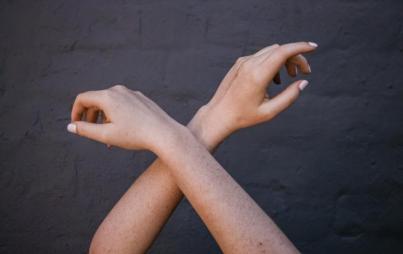
Credit: Facebook
Amal Alamuddin, the human rights lawyer, was recently named the most powerful woman in London, and finished fourth overall on London's most powerful personality list.
Impressive, obviously, but I don't think as many people would know about it had the 36-year-old British attorney not also managed another recent "accomplishment"—marrying George Clooney, the world's most eligible bachelor. And in a move that's made several feminists outraged, this most-powerful woman even decided to take her husband's last name.
In the wake of the news, Elle described the last name debate as "one of the big feminist dilemmas," as people on both sides of the fence wrote in to express why Alamuddin should or shouldn't have taken the traditional path she chose.
But while most of the debate has revolved around feminist ideals of independence and autonomy, there's another, less-gendered element to consider, and it's one that's shifted my own views on the matter: identity.
All In A Name
For years, I thought of myself as someone who would take my partner's last name. But in the past couple years, I've started to think otherwise.
In large part, this is personal. My mother, a traditional woman, took my father's last name when she married him, and had the same name as my brother and I when we were growing up. She always talked about how important it was for all of us to have the same name, to be connected as a family unit.
That is, until her marriage ended in disarray. It's amazing what an ugly ending to a 20-plus-year marriage can do to change a person's mind.
When my mom decided to get remarried, the same question of whether or not to take her partner's name came up. It would mean leaving the name of her children behind, while also taking on a new identity. Instead, she decided to change back to her maiden name because, she told me, she missed being her old self.
All of which made me question how much my name, Jessie Fetterling, represents my own identity—and to question giving it up.
My nicknames—JFet, Fett, Jeff—all revolve around my last name in one way or another. These are the names given to me by the people I'm closest to in life; names of affection and teasing and love that have quite literally defined me in my formative years. Am I willing to give this part of myself up?
As a writer, my name has also become attached to my professional identity in a profound way. The first time I had my name published in print, I felt a sense of pride that's continued to grow. My stories, and the career I've built so far, belong to "Jessie Fetterling." A new name would mean shedding an important part of what I've worked so hard for, and which has come to instill in me a deep sense of personal accomplishment.
Considering all this, I've even started to wonder about the man taking my last name.
My boyfriend has always said that he doesn't mind if I take his last name if or when we get married. In fact, his mother still has her maiden name, and he actually associates with it; it's his middle name. But would he go as far as taking mine?
The other day, we were checking out at a grocery store, and I used my grocery discount card. The checkout clerk told my boyfriend thank you for bagging the groceries, and as we were walking out, said, "Have a great evening, Mr. Fetterling."
I laughed and said, "Well, doesn't that have a nice ring to it?"
He just smiled, wisely saving that debate for another time.
While I would never expect him to change his name, I'm also not sure I could give up mine. I like how far the surname, Fetterling, has gotten me, and like thinking about where it could take me next. It defines me, and like my mother can attest, represents my old and new self. Call me selfish or nontraditional, but I am Jessie Fetterling, and I think I'd like to stay that way.
And not even George Clooney would make me think otherwise.







